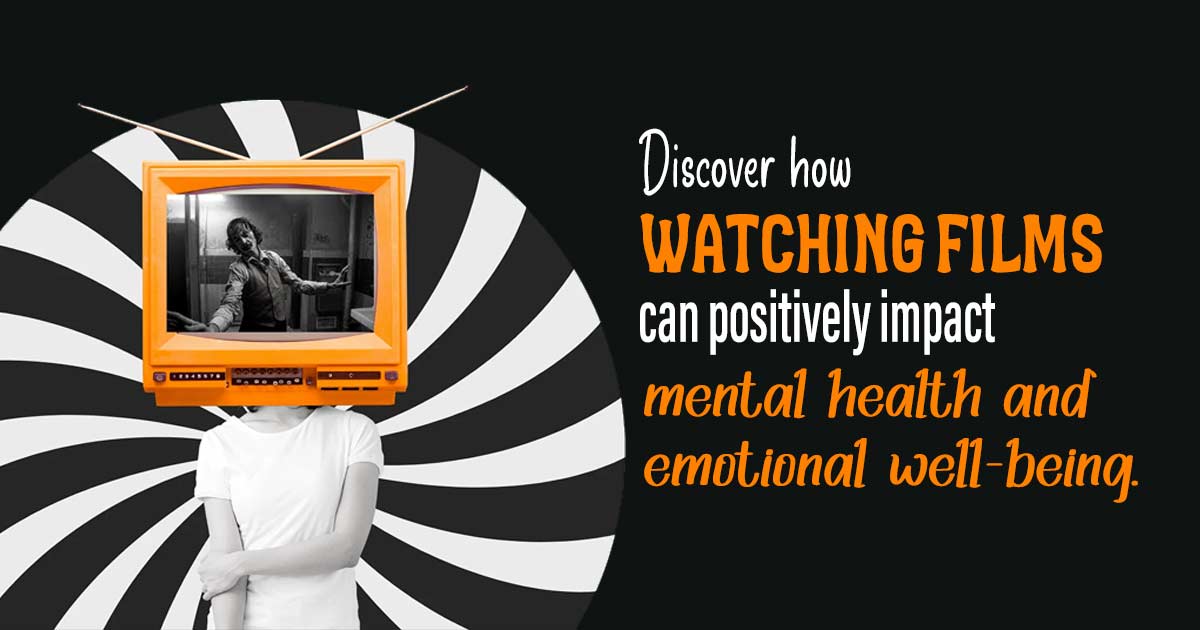Mental health has historically been a stigmatized and misunderstood aspect of human well-being. However, in recent years, unconventional therapies and approaches have begun to reshape the discourse around mental health. Among these unconventional approaches, one that stands out is film therapy in mental health therapies.
The Power Of Film In Mental Health
Films have always had a unique ability to capture the complexity of human emotions and experiences. They serve as powerful vehicles for storytelling, offering viewers the opportunity to explore diverse narratives, empathize with characters, and gain insights into the human condition. It is this storytelling aspect of cinema that makes it a promising tool for addressing mental health challenges.
1. Emotional Catharsis:
Films can evoke a wide range of emotions, from joy and laughter to sorrow and fear. Watching a film that resonates with one’s own experiences can provide a cathartic release of emotions, allowing viewers to process and understand their feelings better.
2. Identification And Validation:
Characters in films often grapple with issues like anxiety, depression, trauma, and more. Seeing these experiences portrayed on screen can help individuals recognize that they are not alone in their struggles, validating their emotions and reducing feelings of isolation.
3. Stimulating Empathy:
Films enable viewers to step into the shoes of characters and experience their lives and challenges firsthand. This can promote empathy and a deeper understanding of the mental health issues faced by others.
The Accessibility Of Film Therapy In Mental Health
One of the remarkable aspects of film therapy in mental health is its accessibility. Unlike traditional forms of therapy, which may require appointments with mental health professionals and come with financial barriers, watching films for mental health can be done anytime and anywhere, making it a readily available resource for individuals seeking mental health support. It is also:
1. Cost-Effective:
Most people can access films affordably through streaming platforms, DVDs, or even free screenings. This affordability ensures that individuals from various socioeconomic backgrounds can benefit from film therapy.
2. Flexible And Convenient:
Film therapy in mental health is highly flexible and convenient. Individuals can choose when and where to watch a film, making it adaptable to their schedules and preferences.
3. No Stigma:
Watching a film is a common and socially accepted activity. Unlike seeking therapy, it does not carry the same stigma, allowing individuals to engage in mental health self-care without fear of judgment.
Practicing Film Therapy In Mental Health

Film therapy in mental health is not a one-size-fits-all approach; it encompasses a variety of methods and techniques tailored to individual needs. Here are some ways in which film therapy is practiced:
1. Prescription Of Films:
some mental health professionals prescribe specific films to their clients as part of their therapeutic process. these films are selected based on the individual’s personal challenges and goals for therapy.
2. Film Clubs And Groups:
film therapy in mental health can be conducted in group settings, where participants watch and discuss films together. this group dynamic encourages dialogue, empathy, and a sense of community.
3. Journaling And Reflection:
Individuals can engage in film therapy independently by watching films and journaling their thoughts and emotions. This self-reflection process allows for deeper insights and personal growth.
4. Guided Discussions:
Therapists or facilitators may lead discussions after film screenings, encouraging participants to explore themes, characters, and their personal reactions to the film.
Effectiveness Of Film Therapy In Mental Health
While the concept of watching films for mental health support may seem unconventional, research has shown its effectiveness in various ways:
1. Symptom Reduction:
Studies have indicated that watching films with relevant themes can lead to a reduction in symptoms of anxiety, depression, and other mental health conditions.
2. Enhanced Self-Awareness:
Film therapy can promote self-awareness by encouraging individuals to reflect on their own experiences in relation to the themes portrayed in the film.
3. Improved Coping Skills:
Engaging with characters’ coping strategies in films can inspire individuals to adopt healthier ways of managing their mental health challenges.
Watching Films For Mental Health Conversations
The use of films as a therapeutic tool is not merely an alternative approach to mental health support; it is also contributing to a profound shift in the conversation surrounding mental health. Here’s how film therapy in mental health is impacting this dialogue:
1. Reducing Stigma:
Film therapy normalizes discussions about mental health by integrating them into mainstream culture. When characters in popular films face mental health issues, it sends a message that these struggles are a part of the human experience.
2. Encouraging Dialogue:
Films provoke conversations about mental health, both within the context of the movie and among viewers afterward. These discussions foster empathy, understanding, and support for individuals facing mental health challenges.
3. Inspiring Advocacy:
Films that address mental health issues often inspire advocacy efforts. Viewers who connect with these narratives may become advocates for mental health awareness, contributing to the broader movement of destigmatization.
The emergence of film therapy in mental health as an unconventional yet effective tool for emotional well-being is changing the conversation around mental health. Films have the power to facilitate emotional catharsis, promote empathy, and reduce stigma. Moreover, film therapy is accessible, affordable, and adaptable to individual needs.
As this innovative approach continues to gain recognition and popularity, film therapy in mental health not only provides individuals with valuable tools for self-care but also contributes to a more compassionate and open-minded society that embraces and understands mental health challenges. In the years ahead, film therapy in mental health is likely to play an increasingly significant role in reshaping how we perceive and address mental health.








